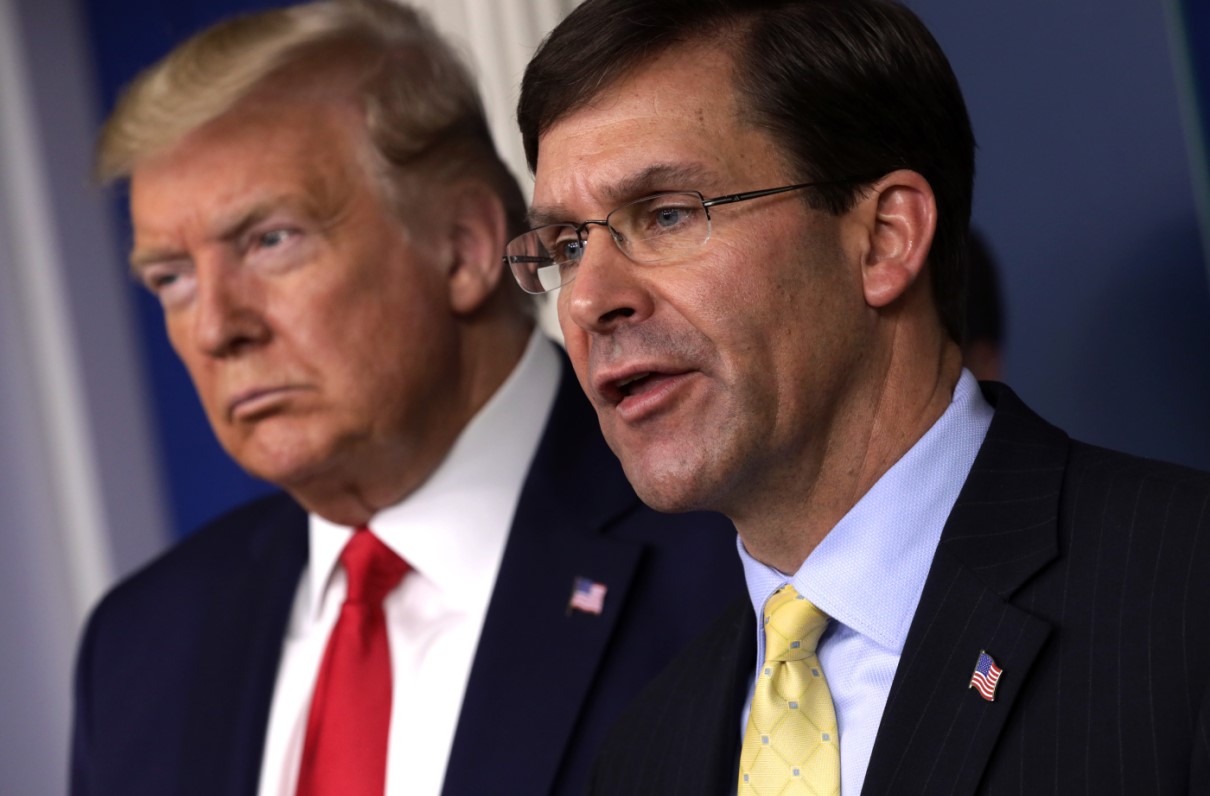As MOAA works to preserve the military health care benefit via Summer Storm 2020, two new distractions may obscure our message.
First, the service secretaries and chiefs penned a letter to Defense Secretary Mark Esper asking him to halt all transfers of military treatment facilities to the Defense Health Agency (DHA).
Second, Esper found himself at the center of an Aug. 16 report by Politico on proposals within DoD that would cut $2.2 billion from DoD’s health care budget. It is not clear if any of this amount was the result of previous Pentagon reviews. Esper tweeted that the story was “inaccurate” and that “he would not allow any reductions that would harm access to quality medical care.” Regardless, any such proposals may be moot following a tweet from President Donald Trump stating the proposal “has been firmly and totally rejected by me.”
[TAKE ACTION: Urge Your Elected Officials to Support Legislation to Stop Cuts to Military Medicine]
Before outlining what these developments could mean moving forward, understand that we must not allow them to distract us or others from our core message: Planned changes to military medicine, including downsizing treatment facilities and removing thousands of medical billets, should be stopped until a more thorough, less flawed, analysis of what these moves will do for patient care can be conducted. Incorporating Sections 715 and 716 of the House version of the FY 2021 National Defense Authorization Act into the final NDAA is a necessary step in this process.
DHA and the Services
On the surface, the service leaders’ request would halt the restructuring of MTFs and any actions relative to Section 716 of the House NDAA. However, there is no indication Secretary Esper will budge from his current plan – follow the law, realign all MTFs under the DHA, and capitalize on any efficiencies by turning those funds over to support war-fighting operations and lethality.
As such, we must continue to make clear our position of getting Sections 715 and 716 in the final version of the NDAA. It remains imperative to ensure DoD maintains a capability to meet its legal obligation to all beneficiaries.
[RELATED: Summer Storm 2020: A Key Goal Reached, But More Work Is Needed]
Tweets, Reports, and Cuts
Notwithstanding the president’s tweet, plans to significantly reduce health care funding and send more beneficiaries out into community networks already are underway and disregard MOAA’s concerns of ensuring access to quality care – concerns validated by the GAO in their report submitted in May.
Per the report, DoD’s assessment of the availability of civilian primary care providers was incomplete and a product of inaccurate information. MOAA members have already told us they have experienced a lack of access to care in the civilian networks in some areas. We must secure legislation to increase DoD reporting requirements and congressional oversight of the processes that govern this service-earned health care benefit.
So, how can you help?
Send this updated letter to your senators now. Help MOAA cut through the distractions and express a clear legislative path forward to protect these earned benefits in an ever-changing environment.
Stay Informed
It’s more important than ever to make sure you’re in the know and your military benefits are protected.

